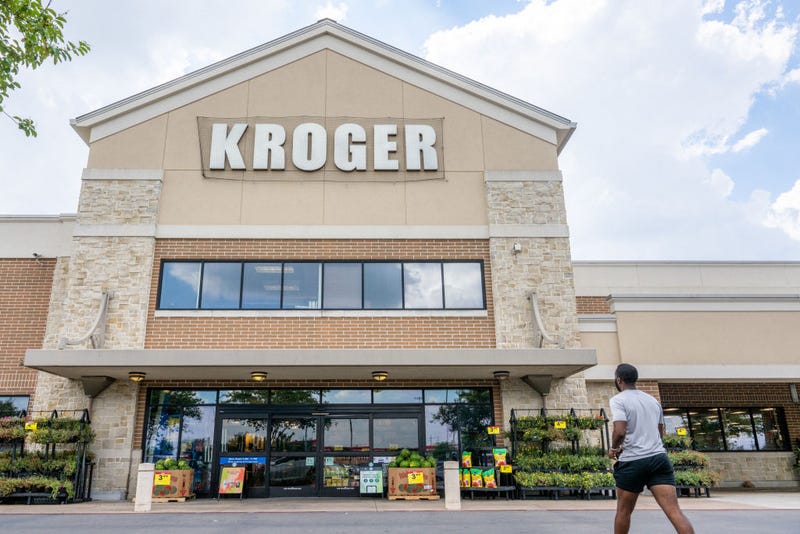
The Federal Trade Commission and nine states have filed a lawsuit to block the merger between Kroger and Albertsons, the two largest supermarket chains in America.
The merger, first announced in October 2022, would cost $24.6 billion.
In the lawsuit, the FTC argues that a Kroger-Albertsons merger would give the newly combined company control of about 13% of the U.S. grocery market, eliminating competition and leading to higher grocery prices for millions of Americans.
"This supermarket mega merger comes as American consumers have seen the cost of groceries rise steadily over the past few years," Henry Liu, Director of the FTC's Bureau of Competition, said in a statement. "Kroger's acquisition of Albertsons would lead to additional grocery price hikes for everyday goods, further exacerbating the financial strain consumers across the country face today."
In addition to higher prices, the FTC said the loss of competition would lead to lower quality products and services, while also narrowing consumers' choices for where to shop for groceries.
"The deal would eliminate head-to-head price and quality competition, which have driven both supermarkets to lower their prices and improve their product and service offerings," the FTC said. "If the merger takes place, grocery prices will increase, and Kroger and Albertsons' incentive to improve product quality and customer service will decrease, further harming customers."
Kroger's proposed acquisition of Albertsons would also "immediately erase aggressive competition for workers," according to the FTC.
"Essential grocery store workers would also suffer under this deal, facing the threat of their wages dwindling, benefits diminishing, and their working conditions deteriorating," Liu said.
Kroger said in a statement that blocking the deal "will actually harm the very people the FTC purports to serve: America's consumers and workers."
"The FTC's decision makes it more likely that America's consumers will see higher food prices and fewer grocery stores at a time when communities across the country are already facing high inflation and food deserts," the grocer said, adding that it plans to invest $500 million to reduce prices day one post-close.
Kroger said the FTC's decision to block the merger "only strengthens larger, non-unionized retailers like Walmart, Costco and Amazon by allowing them to further increase their overwhelming and growing dominance of the grocery industry."
A bipartisan group of nine attorneys general -- from Arizona, California, the District of Columbia, Illinois, Maryland, Nevada, New Mexico, Oregon and Wyoming -- have joined the lawsuit to block the merger. Separately, attorneys general of Washington and Colorado have already filed lawsuits to block the deal.
The FTC said executives for both companies have acknowledged that the two supermarkets are direct competitors, and have conceded that Kroger's acquisition of Albertsons is anticompetitive. The agency quoted one executive reacting candidly to the proposed deal as saying: "you are basically creating a monopoly in grocery with the merger."
Kroger operates thousands of stores across 36 states, which includes regional banners such as Fred Meyer, Fry's, Harris Teeter, King Soopers and Quality Food Centers. Albertsons also operates thousands of stores across 35 states under regional names including Haggen, Jewel-Osco, Pavilions, Safeway and Vons.
If the merger were completed, Kroger and Albertsons would operate more than 5,000 stores and approximately 4,000 retail pharmacies and would employ nearly 700,000 employees across 48 states.
The companies said they would divest, or sell off, more than 400 stores to C&S Wholesale Grocers to secure antitrust approval. However, the FTC described that plan as a "hodgepodge of unconnected stores, banners, brands, and other assets" that "falls far short of mitigating the lost competition between Kroger and Albertsons."
Kroger, which had anticipated closing the deal by mid-August, said it is now looking forward to mitigating the issue in court.
